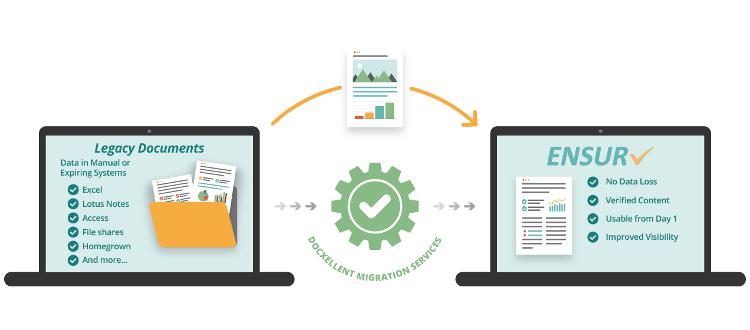
As we stand on the cusp of a new year, the business world continues to evolve at an unprecedented pace. To thrive in this dynamic environment, organizations are increasingly turning to robust frameworks such as Quality Management Systems (QMS). In this ar ticle , we delve into the intricacies of the QMS and unveil nine compelling benefits that make its implementation a strategic imperative for businesses in 2024.
What is a Quality Management System (QMS)?
A Quality Management System (QMS) is more than just a set of procedures; it is a comprehensive framework designed to orchestrate, monitor, and continually refine an organization's processes. It operates as the organizational heartbeat, ensuring that every facet of the business aligns with predefined quality standards and objectives. From product development to customer service, a QMS is a systematic approach that fosters a culture of quality within an organization.
In an era where consumer expectations are soaring and the marketplace is hyper - competitive, the relevance of QMS cannot be overstated. It transcends being a mere quality control mechanism; QMS has become synonymous with organizational resilience and adaptability. Businesses that invest in QMS are better equipped to navigate the complexities of a globalized and technologically driven world, positioning themselves no t just as providers of products or services but as custodians of unwavering quality.
9 Benefits of Implementing a QMS in 2024
This comprehensive exploration will unveil the nine pivotal benefits that businesses stand to gain by embracing QMS in 2024. From elevating product and service quality to ensuring regulatory compliance, driving operational efficiency, and fortifying brand reputation, each benefit intricately contributes to the overarching success and sustainability of an organization.
1. Improved Product and Service Quality
Consistent Standards for Product or Service Delivery
Implementing a QMS is akin to crafting a symphony of consistency in product or service delivery. It establishes standardized processes, ensuring that every iteration, whether it be a product manufactured or a service rendered, adheres to predetermined quality benchmarks. This not only instills confidence in customers but also contributes to the creation of a reliable brand identity.
Reduction in Defects and Errors
One of the cornerstone benefits of a QMS is its ability to function as a vigilant sentinel against defects and errors. By integrating systematic monitoring and analysis into operational processes, organizations employing a QMS can identify and rectify potential issues at their inception, preventing them from snowballing into larger problems. This reduction in defects not only bolsters the overall quality of the final output but also leads to substantial cost savings by mitigating the need for costly post-production corrections.
Enhanced Customer Satisfaction Due to Improved Quality
At the heart of every successful business lies a satisfied and loyal customer base. The QMS plays a pivotal role in elevating customer satisfaction by fostering a culture of continuous improvement in quality. As products and services consistently meet or exceed customer expectations, trust is cultivated, leading to increased customer loyalty and positive word-of-mouth marketing.
2. Regulatory Compliance and Risk Management
Ensuring Compliance with Industry Regulations
In an era where industries are subject to an ever-expanding web of regulations, the QMS acts as a regulatory compass for organizations. It provides a structured framework that ensures adherence to industry-specific regulations, safeguarding businesses from legal pitfalls and fostering an environment of ethical and responsible conduct.
Minimizing Risks Associated with Non-Compliance
Non-compliance is not merely a legal hazard; it poses significant risks to an organization's reputation and financial stability. A QMS can act as a proactive shield, minimizing risks associated with non - non-compliance by continuously aligning organizational processes with regulatory requirements. This not only protects the brand image but also shields the organization from potentially crippling legal consequences.
Adapting to Any New Regulatory Requirements in 2024
The regulatory landscape is a dynamic terrain, subject to constant shifts and revisions. The QMS, with its inherent flexibility, equips organizations to adapt swiftly to any new regulatory requirements that may emerge in 2024. This adaptability ensures that organizations remain at the forefront of compliance, regardless of the evolving regulatory landscape.
3. Increased Efficiency and Cost Savings
Streamlining Processes for Greater Efficiency
Efficiency is the lifeblood of organizational success. A QMS acts as a catalyst for operational efficiency by subjecting processes to systematic reviews and improvements. By identifying and eliminating bottlenecks, redundancies, and inefficiencies, organizations can streamline their operations, reducing lead times and enhancing overall productivity.
Identifying and Eliminating Unnecessary Costs
Cost control is a perennial concern for businesses striving for financial sustainability. A QMS, through its continuous monitoring and improvement mechanisms, provides organizations with the tools to identify and eliminate unnecessary costs. By scrutinizing each stage of the production or service delivery process, QMS enables organizations to make informed decisions that contribute to overall cost savings.
Optimizing Resource Utilization
Through QMS Implementation Effective resource utilization is a hallmark of successful organizations. QMS, by its very nature, optimizes the use of resources by ensuring that each resource is deployed strategically in alignment with quality objectives. Whether it be human resources, raw materials, or time, QMS implementation maximizes efficiency, contributing to the overall health of the organization.
4. Enhanced Customer Satisfaction
Meeting and Exceeding Customer Expectations
In the fiercely competitive business landscape of 2024, customer satisfaction isn't just a goal; it's a strategic imperative. A QMS can serve as a catalyst for meeting and exceeding customer expectations by ensuring that products or services consistently align with predefined quality standards. By adhering to these standards, organizations not only meet the baseline requirements of their customers but also have the opportunity to exceed expectations, thereby fostering unparalleled customer satisfaction.
Building Trust Through Consistent Quality
Trust is the bedrock of enduring customer relationships. A QMS contributes significantly to building and sustaining this trust by facilitating consistent quality. When customers can rely on the fact that each interaction, product, or service will meet a high standard, trust is established and fortified over time. Consistent quality becomes synonymous with the brand, creating a positive feedback loop that resonates with customers.
Utilizing Customer Feedback for Continuous Improvement
Customer feedback is a goldmine of insights that organizations can leverage for continuous improvement. A QMS encourages a proactive approach to customer feedback, turning it into a valuable resource for refining processes and enhancing offerings. By systematically collecting and analyzing customer input, organizations can identify areas for improvement, ensuring that their products or services evolve in tandem with changing customer needs.
5. Better Decision-Making with Data
Gathering and Analyzing Data for Informed Decision-Making
In the era of big data, organizations that harness the power of data-driven decision-making gain a competitive edge. A QMS facilitates this by providing a structured approach to gathering and analyzing relevant data. This data encompasses not only customer feedback but also internal operational metrics, creating a comprehensive dataset that empowers informed decision-making at all levels of the organization.
Utilizing QMS Data for Strategic Planning
QMS-generated data is not just a byproduct; it's a strategic asset. Organizations can leverage this data for strategic planning, identifying trends, predicting market shifts, and making informed decisions that align with overarching business goals. A QMS transforms data into a strategic compass, guiding organizations toward a future marked by resilience and adaptability.
Improving Overall Business Performance Through Data-Driven Insights
The insights derived from QMS data go beyond individual decisions; they contribute to improving overall business performance. By identifying areas of strength and weakness, organizations can proactively address operational inefficiencies, optimize resource allocation, and fine-tune strategies. The result is a business that not only survives in the competitive landscape but thrives through continuous improvement.
6. Employee Engagement and Accountability
Involving Employees in Quality Improvement Processes
Employees are the backbone of any organization, and their engagement is integral to the success of the QMS. These systems foster a culture where employees are not just participants but active contributors to quality improvement processes. By involving employees in decision-making and quality initiatives, organizations tap into a valuable source of ideas and insights.
Establishing Clear Roles and Responsibilities
Clarity in roles and responsibilities is a cornerstone of effective quality management. A QMS ensures that each employee understands their role in the larger quality picture, reducing ambiguity and fostering a sense of ownership. With clearly defined responsibilities, employees are better equipped to contribute meaningfully to the organization's quality objectives.
Fostering a Culture of Accountability and Continuous Improvement
A QMS goes beyond processes; it's a cultural shift. By fostering a culture of accountability, this system encourages employees to take ownership of their work and its impact on quality. This culture, combined with a commitment to continuous improvement, creates a dynamic environment where employees are not just accountable for their actions but are actively engaged in the pursuit of excellence.
7. Scalability and Adaptability
QMS as a Foundation for Scalable Business Growth
As businesses aim for growth, scalability becomes paramount. A QMS provides a solid foundation for scalable growth by ensuring that quality is not compromised as operations expand. Whether it's an increase in production volume or the expansion of service offerings, a QMS acts as a guiding principle, ensuring that each step forward is a step toward sustainable growth.
Flexibility to Adapt to Changing Business Environments
The only constant in business is change, and adaptability is a key determinant of success. A QMS offers the flexibility needed to adapt to changing business environments, be it technological advancements, shifts in market dynamics, or unforeseen disruptions. Organizations with QMS in place are better equipped to navigate uncertainties, ensuring resilience in the face of change.
Ensuring Sustainability and Longevity in the Market
Sustainability goes beyond environmental considerations; it extends to the sustainability of a business in the market. A quality management system contributes to long-term sustainability by providing a framework for consistent quality, adaptability, and scalability. Organizations that prioritize a QMS are not just planning for short-term success but are laying the groundwork for enduring relevance in the market.
8. Competitive Advantage
Standing Out in the Market with a Strong Commitment to Quality
In a crowded marketplace, a commitment to quality becomes a defining feature that sets businesses apart. The QMS positions organizations to stand out by ensuring that quality is not just a buzzword but a lived commitment ingrained in every aspect of their operations. This commitment becomes a beacon that attracts quality-conscious customers and differentiates the business from competitors.
Meeting or Surpassing Industry Standards
Meeting industry standards is an expectation; surpassing them is a competitive advantage. A QMS not only ensures compliance with industry standards but positions organizations to exceed them. This commitment to surpassing standards becomes a strategic differentiator, signaling to customers and partners that the organization is dedicated to pushing the boundaries of quality.
Attracting Customers Who Prioritize Quality in Products or Services
Quality-conscious customers actively seek businesses that share their commitment to excellence. QMS becomes a magnet for these customers, attracting a clientele that values and prioritizes high-quality products or services. This targeted customer base, drawn by the organization's dedication to quality, contributes to sustained business growth and profitability.
9. Brand Reputation and Trust
Building a Positive Brand Image Through Consistent Quality
Brand reputation is a delicate tapestry woven through every interaction a business has with its customers. A QMS plays a pivotal role in building a positive brand image by ensuring that every product or service consistently meets or exceeds quality expectations. This reliability becomes synonymous with the brand, contributing to a positive perception in the minds of customers.
Gaining Customer Trust and Loyalty
Trust is not bestowed; it's earned. Implementing a QMS ensures that organizations earn and retain the trust of their customers by delivering on quality promises consistently. Trust, once established, translates into customer loyalty, creating a bond that goes beyond transactional relationships. Loyal customers become brand advocates, contributing to sustained business growth.
Demonstrating Commitment to Excellence in the Marketplace
In a marketplace where reputations are made and broken swiftly, demonstrating a commitment to excellence is not just a marketing strategy; it's a survival tactic. A QMS is the embodiment of this commitment, showcasing to the marketplace that an organization is dedicated to delivering quality consistently. This demonstration of excellence becomes a beacon that resonates with customers and partners alike.
As businesses navigate the complexities of the current business landscape, it's imperative to view the QMS not merely as a set of processes but as a strategic investment for success. The benefits outlined herein transcend the immediate gains, positioning quality management systems as the guiding fo rce that propels organizations toward enduring excellence. By investing in a QMS, businesses lay the foundation for a future where quality is not just a goal but an ingrained aspect of their organizational DNA.
The Benefits of ENSUR
Amid the array of QMS solutions available, ENSUR, offered by DocXellent, emerges as a beacon of comprehensive quality management. ENSUR goes beyond being a mere system; it is a partner in the pursuit of operational excellence, customer satisfaction, and continuous improvement.
By choosing the ENSUR quality management system, organizations gain access to a robust platform that seamlessly integrates with their processes, fosters collaboration, and ensures adherence to the highest quality standards. The user-friendly interface empowers employees at all levels, creating a culture of engagement and innovation.
As we embark on this journey into the future, consider the possibilities that ENSUR can unlock for your organization. To delve deeper into how ENSUR can be tailored to meet your specific needs and elevate your business to new heights, contact DocXellent today and request your very own demo. Our team of experts is ready to guide you through the transformative power of ENSUR, helping you build a foundation for sustained success in the dynamic landscape of 2024 . Your pathway to transformative excellence awaits.
Take the next step toward transformative excellence. Invest in QMS. Embrace ENSUR. Secure your future success.
.png?width=770&height=116&name=Blog%20Author%20Headers%20(5).png)
Chad Bouley is the Technical Support Manager at DocXellent, involved in all aspects of the software lifecycle. With over 20 years of experience in the technology industry, he excels in problem-solving and oversees professional services like data migrations. He values the collaborative and family-friendly environment at DocXellent and takes pride in contributing to the company's success. When not at work, Chad enjoys spending time with his family and playing Hearthstone, a virtual trading card game. He is passionate about continuous improvement and ensuring DocXellent supplies our customers with the best services possible. Learn more about Chad here.




























